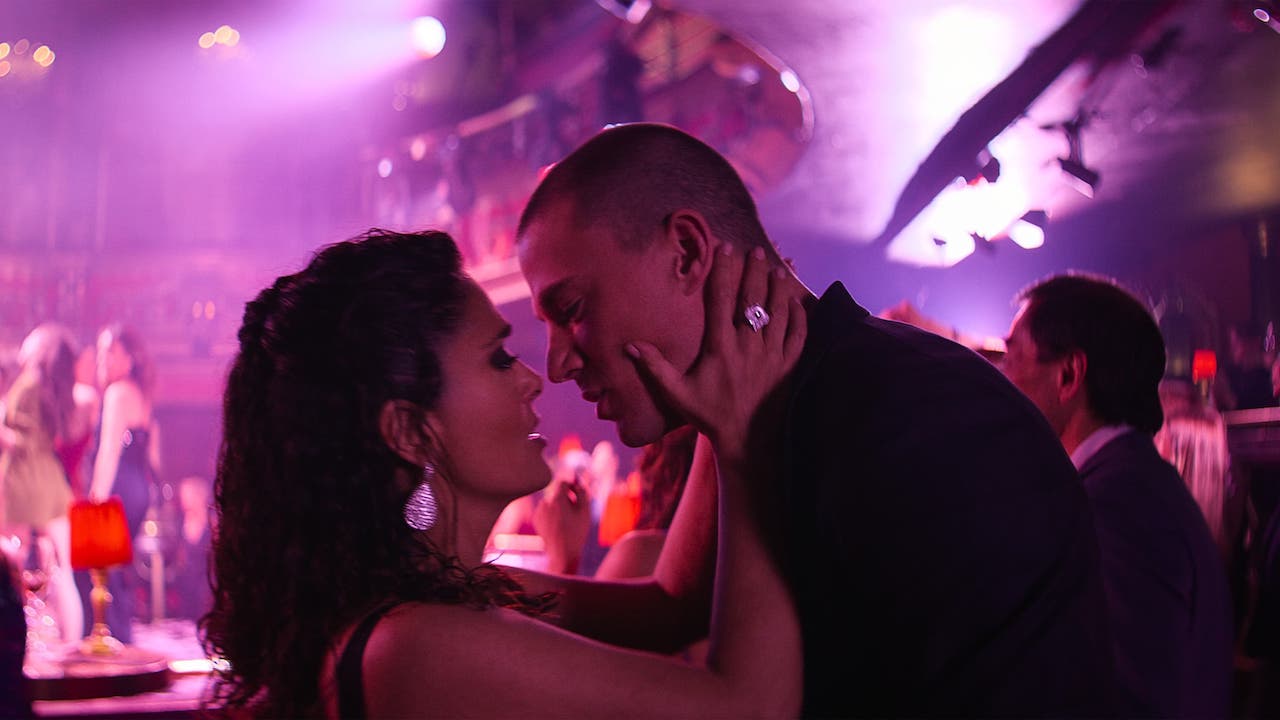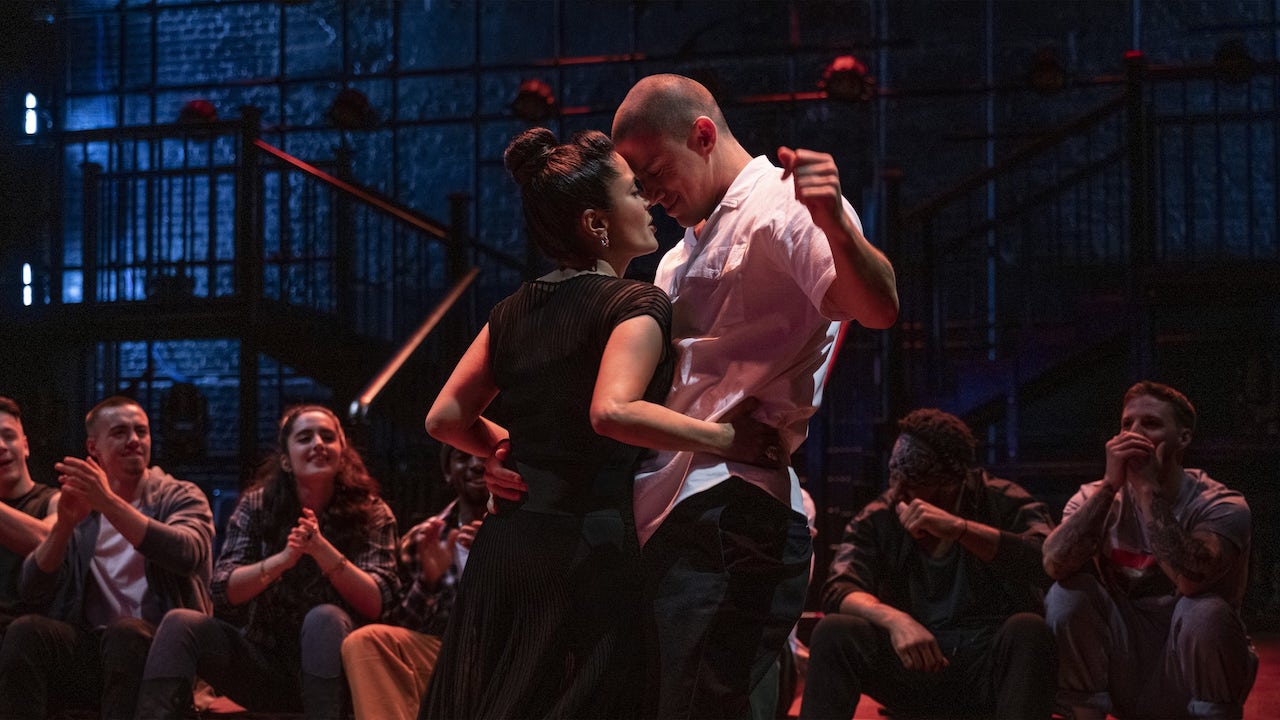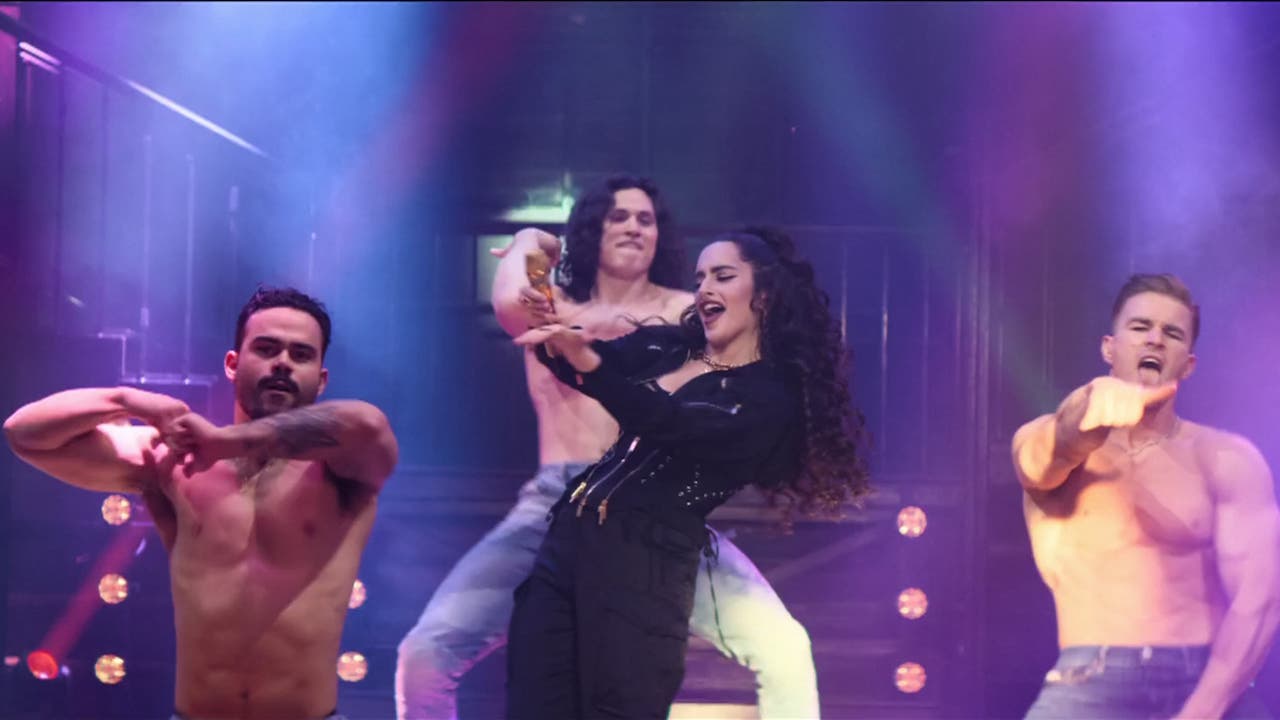Magic Mike’s Last Dance is an anticlimactic finale to the female fantasy franchise

Channing Tatum’s big-dreaming dancer puts on a big final show in London in trilogy-ender Magic Mike’s Last Dance. A riled-up audience and actual strippers still failed to impress Eliza Janssen enough.
Walking into a screening of Magic Mike’s Last Dance, we notice an ominous fibreglass platform resting in front of the cinema screen. “I don’t know what I’ll do if dancers pop out before the movie”, I loudly worry to my friends. “It’ll be so awkward, like, what if the audience doesn’t go for it? And we all just stare at them blankly? I can’t handle it.”
Seconds later, the three hunks sitting right in front of us strip off their hoodies to (of course) the belching beat of Ginuwine’s “Pony” and grind like the rent is due. These poor sexy performers certainly heard me disparaging them. And yet they twerked and humped the floor for my entertainment nonetheless.
It’s a strange and apt appetiser for the third film in the Magic Mike series, a franchise of Steven Soderbergh dramedies that has become increasingly vocal about its attempt to appease the elusive female gaze. The first entry had Soderbergh’s usual jaundiced, serious-indie-drama visuals and a low key narrative of professional stripper Mike Lane (Channing Tatum, drawing from his own sweaty stage background) aspiring to something more in life. The second, best, and most perfectly titled chapter, Magic Mike XXL, was a less serious yet seriously fabulous road trip, exhibiting the raucous joy of wholesome hunky men and the women they love to please.
Despite that ensemble-driven story being billed as Mike’s “one last job”, he accepts the third film’s titular Last Dance with Salma Hayek’s rich divorcee Max, whamming her onto coffee tables and burying his head in her crotch as a final private gig. She’s so energised by his passion that she hires him as the director of a new London strip revue, fuelled by romantic spite, horniness, and her ex’s considerable finances.

What follows is entertaining if thin, with some unusually flat montages from Soderbergh and a new cast of British beefcakes with nary a line of dialogue between them. The dialogue we do get is dealt out by Hayek’s hare-brained entrepreneur and performer/feminist mouthpiece Hannah (Juliette Motamed), because it really would be a bit shit if their big show about women’s vocal and uninhibited desires was completely delivered by dudes.
My audience had quite mixed feelings about this. One bro leaving the theatre whinged, “what was all that female empowerment stuff?” When Hannah grabs the stage show’s “magic mic” (hehehehe) to tell us what women really want, a belligerent viewer shouted “oh, get on with it!”, getting bigger laughs from the auditorium than many of the movie’s own racy, giggle-inducing moments.

The Magic Mike films have always rejoiced in ribald performance of gender, desire, the conventional expectation that girls are to look hot for men and men may silently approve via a transactional cash reward. In Mike’s world, screaming throngs of bachelorettes, cougars, and even the most repressed characters enjoy the OTT and often goofy male sex workers with their eyes and sometimes their hands, after the dancers have sweetly acquired their consent. Whereas, just to explain the gender dynamic here, if I were a barely-dressed dancer and my male clients laughed and squealed at me on stage, I would sprint away in tears and dress like an Amish virgin for the rest of my life.
That binary has always been expressed, with delightful choreography and a winking sense of play, in the first two Magic Mike entries, often through sensuous visual storytelling alone. So I don’t quite know how audiences will react to a far more obvious iteration of the same themes: it’s all extremely entertaining, but a less clever climax to the dynamic second film. Despite a genuinely stunning third act ballet number performed by Tatum in a pool of artificial rain, this wet dream of a franchise gets a dried-up anticlimax.



















